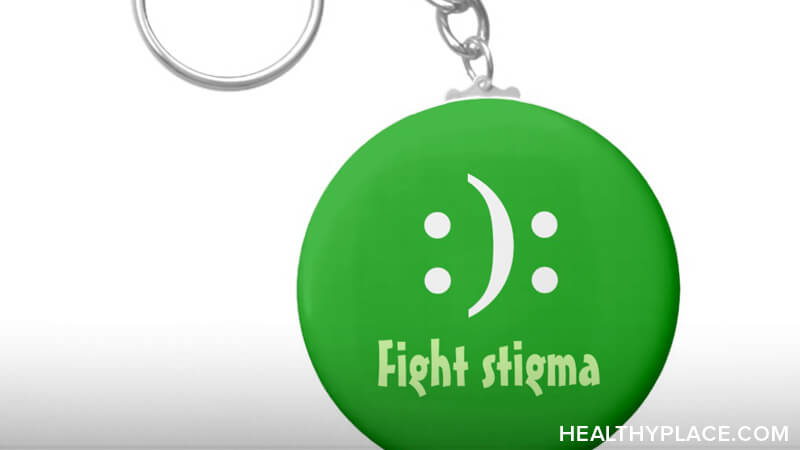Mental Health Stigma Causes Shame and Guilt We Don't Deserve

Stigma can cause shame and guilt in people with mental illness. Have you ever felt guilty for having a mental illness? I definitely have. When I reveal to someone that I have depression, my heart starts to beat fast and my hands get clammy. What are they going to think? Are they going to scoff at what they consider a weakness? Are they going to cut ties with me altogether? This is one of the scariest situations someone with mental illness has to face and it's because shame and guilt can be caused by stigma.
Depression Stigma Caused Shame and Guilt at Work
When the depression was at its worst, I would call out sick from work multiple times a week. In the beginning, I would make up excuses so that I didn’t have to admit the truth. It was embarrassing. All I could think about was how much my managers would judge me. They might say something like, “You just need to suck it up” or “You’re sad. Everyone gets sad. Be like everyone else and leave it at home.”
When I finally told them, some of the supervisors would subtly roll their eyes when I asked to go home early or sound exasperated when I called in sick. I started having my husband call for me, because I was too scared to hear the disappointment in their voices.
On days I could force myself to go, I would cry before and during the 45-minute drive to work. I was so ashamed of myself.
Losing Friends Due to Stigma, Shame and Guilt
I lost several friends because they didn’t understand what I was going through. When I would cancel on outings, they would attribute it to me being a flake. They would get angry with me. I would try and explain, but since they weren’t able to comprehend the pain I was feeling, they gave up on me.
I forgave them though. Even though it hurt, I realize that it's difficult to truly understand what mental illness does to a person if you haven’t experienced it firsthand (Can People Without Mental Illness Understand Us?). That’s why I want to be a part of creating awareness for mental health.
How We Can Fight Mental Illness Stigma, Shame and Guilt
According to The National Center for Biotechnology Information, “mental disorders continue to be driven into the shadows by stigma, prejudice, and fear.”
This is something we need to change. As we bring more awareness to mental health, we will create a more understanding world.
I am doing much better now. However, it's still hard to admit when I’m having a bad brain day. I feel that others will think I’m weak. I can barely stand myself when I'm consumed with negative thoughts. Will others give me grace when I can’t even forgive myself?
As I work towards recovery, I am coming to terms with the idea that not everyone will accept me and my illness. And that’s okay. But that doesn’t stop me from wanting to help our families, friends, and the rest of society feel comfortable with the idea of mental illness, rather than pretending it doesn’t exist.
I want to encourage you in your journey to recovery. I am sure you have encountered people who turned from you when you told them about your struggle. You are not alone. I hope that you can find a safe place here.
How have you coped with facing the stigma of mental illness along with shame and guilt? I'd love to hear your thoughts.
APA Reference
Capper, J.
(2018, February 20). Mental Health Stigma Causes Shame and Guilt We Don't Deserve, HealthyPlace. Retrieved
on 2025, December 6 from https://www.healthyplace.com/blogs/mentalhealthforthedigitalgeneration/2018/02/fighting-back-against-the-mental-illness-stigma